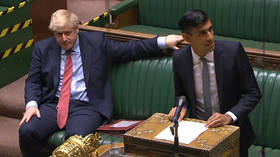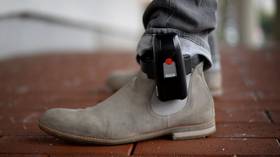‘Scientists’ said Brits won’t stay home because of ‘behaviour fatigue’, and pushed Project Fear. Now most don’t want to go to work

The behavioural science-informed insight that citizens would suffer ‘fatigue’ and thus would not comply with government-imposed lockdowns unless ‘nudged’ to do so has proven that behavioural science is as scientific as astrology.
The insight from behavioural science that citizens would suffer ‘fatigue’ and thus would not comply with government-imposed lockdowns unless ‘nudged’ to do so has proven that behavioural science is as scientific as astrology.
After almost four months of lockdown, some five out of every six office workers in the UK are still unwilling to return to work as normal. This puts myriad big-city auxiliary businesses – shops, cafes, pubs and the like – on the verge of collapse.
Far from suffering fatigue, ordinary people remain resolute in their self-protection, while the government is displaying fatigue at the outcome it has fostered.
At the start of the pandemic, behavioural scientists were engaged in a hotly contested debate about the relevance of their discipline to managing the crisis. The issue was the lockdown and how, and what pace, this should be imposed on society.
The UK government, informed by the now privatised Behavioural Insights Team, (BIT) (also known as the Nudge Unit) warned of “behavioural fatigue”: that public adherence to quarantines might wane over time and thus that they would be non-compliant when the virus threat was at its peak. This informed the presentation of government messaging, which sought to ‘nudge’ people into changing their behaviour, rather than ordering them to do so.
This was hotly contested by other behavioural scientists. An open letter was signed by 681 academics from around the UK who questioned the evidence to back this up, arguing this was delaying what they saw as an urgent need to reverse this fatal flaw and impose a lockdown immediately.
But this was not a debate about medical science. This was about behavioural science – a relatively new and conspicuously trendy branch of the social sciences that uses glib psychology to model and find ways to change people’s behaviour.
Much of the discipline is based upon the brilliant ‘discovery’ that people often take decisions about their lives that contradict their individual interests or aims. This unremarkable insight – well known to most mature adults – is presented as an amazing game-changing discovery and underpins nudge theory. This theory regards the public as irrational decision-makers, as half-conscious, half-baked creatures who need to be subtly guided in what experts deem to be the right direction.
In short, this is not really a science at all – it is a patronising worldview of over-educated elitists, couched in psychobabble – a worldview all sides in the contested ‘behavioural fatigue’ debate share.
The critics of the government weren’t challenging behavioural science for its non-science. They were concerned that delaying the lockdown sent the wrong signal to the flaky public. Their concern was that if the government did not take action, the public would regard this as a sign that this was not so serious. They assumed the public reaction would be as follows: ‘If the government takes no further action, why should I bother washing my hands or refraining from hugging my friends?’
Obviously, if there were no clear nudge – like a draconian lockdown – ordinary people, unlike these experts, would simply stop washing their hands. Night follows day after all, it seems. Which is why they seized upon the unprecedented halt to topflight football – before the government imposed this upon all sports – as the kind of ‘high-visibility indicator’ that needed to be used to nudge the fickle working-class masses into accepting how serious the situation really was.
In other words, what they promoted as an alternative to the non-evidence based ‘behavioural fatigue’ was Project Fear. That football was shut down, as were schools – unprecedented even in wartime – surely was ‘proof’ that we were not dealing with ‘ordinary flu’. Simply the irrational overreaction to a health threat was proof enough and powerful enough to forcibly alter people’s behaviour. This is what united both sides of the argument.
Also on rt.com £1k bounties for care homes to take Covid patients show BoJo can’t dodge blame for UK’s death tollAnd it worked, to such an extent that now behavioural scientists are desperate to find other high-visibility indicators to nudge people back to work. Making masks compulsory in public places has reinforced the sense of vulnerability rather than provide any confidence in a return to normality.
These examples reveal more about the elitist prejudices of the behavioural scientists than it does about the behaviours of ordinary people. Project Fear worked. We did not need behaviour scientists to nudge anyone into accepting this. The public endorsement of the lockdown and social distancing, indeed its continuing support despite government signals to the contrary, demonstrate how the public actually exercised their moral autonomy within the confines of what was publicly understood to be the threat.
The reluctance to return to work is not irrational or stupid. Why wouldn’t anyone take that approach given the apparent health threat or indeed, the fact that most have been paid to stay at home?
The ambition to transform the sphere of moral judgment into a laboratory has shown behavioural science to be a sham and an elitist fantasy. Covid-19 shows the fundamental flaw in a dubious project which sets out to transform judgment from a moral into a scientific accomplishment by self-appointed experts.
While there are many problems associated with a reluctance to return to some forms of normality, one thing is reassuring and should be celebrated: the autonomy of the individual still retains meaning.
Think your friends would be interested? Share this story!
The statements, views and opinions expressed in this column are solely those of the author and do not necessarily represent those of RT.















